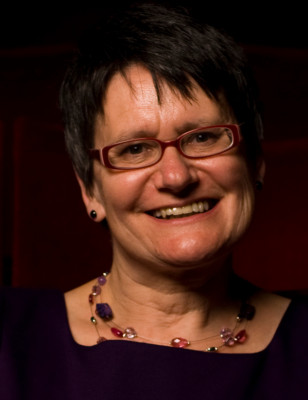I have the dubious distinction of having made my therapist cry - when I said goodbye recently, after four and a half years of therapy, I gave him a small artwork I'd made which featured the words 'you helped me change my life'. He was moved; it was gratifying to see him cry, since I'd struggled not to throughout our entire relationship. But I was truly grateful for his care, his insights, humour and professionalism. We'd had quite a few laughs together, along with the agony, sadness and confusion.
What I have now accepted is that there are times in your life when you know things are not quite right.
Coming up to 60 years of age, I realise that I've sought emotional help on four separate occasions - two good, two not so good - but each time, furious and ashamed, because I think of myself as a sane, well-balanced person. I had brilliant parents and a great childhood - I have a lovely partner, three amazing children, a great extended family and some wonderful close friends, so how come I needed THAT kind of help? What I have now accepted is that there are times in your life when you know things are not quite right; when friends can't comfort you; where nothing that has helped you before seems to work. The best therapy means having someone to walk beside you for that part of the journey; an arm to lean on if you need it; someone to help you find the right way. But you have to want the help; you have to be committed to accepting it.
My two good experiences of therapy were cringe-making, emotionally exhausting, time, money and energy sapping as well as creative, fascinating and life-changing. I think of those two therapists often, and I shall never forget them. Both helped me cope with a difficult time in my life; they made me feel better about myself; challenged me to see things differently. Both gave me a much-needed space in which to think, feel and despair, safe in the knowledge that they were there only for me and were firmly on my side.
I was seeing my present and my future in a much sunnier light.
Looking back, it seems a curious kind of relationship. The therapist I was with the longest described it as a kind of love, to which I retorted cynically 'what kind of love can you buy for £50 an hour?' And yet later, when week by week I began to trust him with my darkest thoughts, reveal hidden fears and show the worst as well as the best of me, I realised one day with astonishment that I was seeing my present and my future in a much sunnier light. My relationship with my partner developed and grew; my work life blossomed, I started doing things I actually enjoyed instead of obeying the 'must' and 'ought'. And I started coming to terms with my children flying the nest.
My problem with therapy, at least initially, was the inequality of the relationship, the feeling that he could be judging me since I knew nothing about him, his situation, or his views. Did I feel curious? Of course, it would be strange not to. But I was persuaded by his argument that if I knew something about him, I'd have to worry about him - and the last thing I needed was another person to worry about. The saving grace was that I found a therapist who shared my sense of humour and who would allow me the odd wisecrack to lighten the mix.
But how do you find the right person? A therapist friend gave me this advice. Choose at least three people and call each of them in turn. If you feel like you want to put the phone down after two minutes, forget it. If you can hold a conversation for longer than three minutes, there's a good chance you can sit in the room together.
I didn't expect to sit in a room for over four years. But I'm really glad I did.

